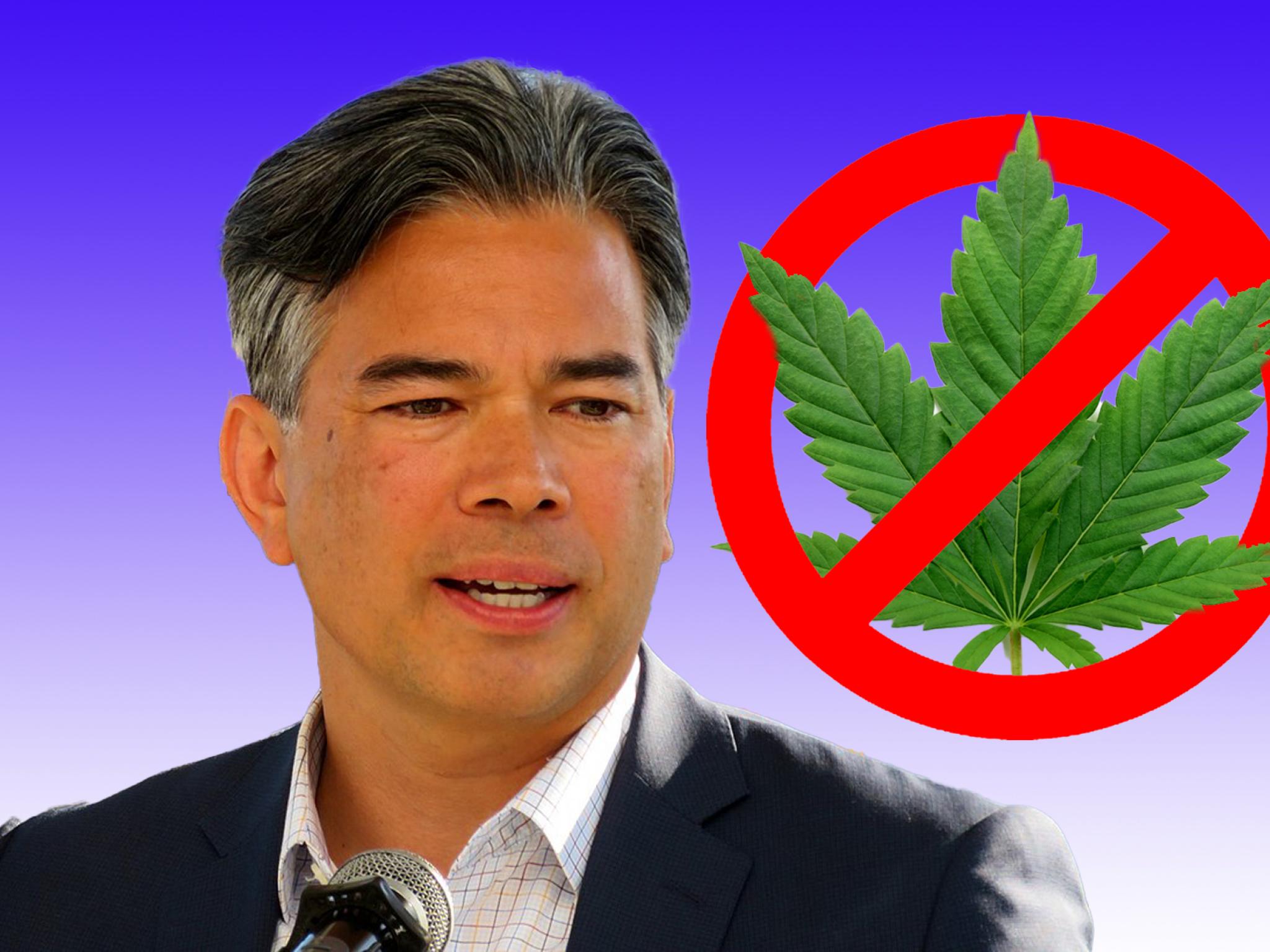
California Attorney General Rob Bonta announced a new approach Thursday to eliminating illegal cannabis farms after this year’s eradication program seized almost one million marijuana plants.
Under the broader approach to resolving illicit grows, the annual Campaign Against Marijuana Planting (CAMP) program that was initiated under Republican Governor George Deukmejian in 1983 will be transformed into a permanent Eradication and Prevention Of Illicit Cannabis (EPIC) task force, Bonta said, as reported The Orange County Register.
CAMP was launched in “a very different time, a different era, a different moment during the failed war on drugs and (at) a time when cannabis was still entirely illegal,” Bonta said.
Bonta, a Democrat who is running for election to his first full term next month, also confirmed that nearly one million seized plants were valued at $1 billion and that the program also confiscated more than 100 tons of processed cannabis, 184 weapons and some 22 tons of materials used to grow the plants, such as dams, water lines, and toxic chemicals, including pesticides and fertilizers.
Ongoing Problem
Illegal cannabis grows in the Sunshine State have been affecting the environment for many years. Just recently, Congress members Scott Peters (D-CA) and Doug LaMalfa (R-CA) introduced legislation that seeks to crack down on the use of banned pesticides on illegal marijuana grows on public land.
The bill called the Targeting and Offsetting Existing Illegal Contaminants (TOXIC) Act was drafted to address and rectify environmental damage being done by illegal pesticides. According to an official statement from LaMalfa’s office, TOXIC also raises criminal penalties for those who grow cannabis on federal land and use banned pesticides.
It is important to note that banned pesticides are banned for a reason: they're dangerous. Consumers who consume even small amounts of marijuana treated with these substances could potentially die.
The bill’s introduction came several months after the California county sheriff called for a state of emergency over illegal cannabis grows.
The New Plan
The new program seeks to halt underlying labor crimes, environmental crimes, and the underground economy centered around illegal cultivation sites, Bonta said.
He called it “an important shift in mindset and in mission” adding that it should benefit California's legal marketplace.
“The illicit marketplace outweighs the legal marketplace,” he said. “It’s upside down and our goal is complete eradication of the illegal market.”
The seasonal eradication program typically lasts some three months every summer, will now continue, empowered by collaboration with other federal, state, and local agencies, including the U.S. Forest Service, Bureau of Land Management, the DEA, National Park Service, California Department of Fish and Wildlife, California State Parks and the California National Guard, some of which will also participate in the new task force.
The task force is supposed to work with Department of Justice prosecutors, the department’s Cannabis Control Section and an existing Tax Recovery in the Underground Economy (TRUE ) that was formed to file cases against those behind illicit grows.
Human Trafficking
Bonta further highlighted that workers at these farms are often victims of human trafficking, “living in squalid conditions alone for months on end and with no way out. These are not the people who are profiting from the illegal cannabis industry. They’re being abused, they’re the victims. They are cogs in a much bigger and more organized machine.”
As much as 80% of the 44 illegal sites found on and around the Bureau of Land Management area this year were linked to drug trafficking organizations, said Karen Mouritsen, the bureau’s state director.
“Illegal cultivation of marijuana on public lands continues to be a major problem for California,” Mouritsen, said. “These illegal operations have a devastating impact on our environment and the health and safety of communities and public land users.”
Bonta concluded that even though there are plenty of challenges concerning organized crime, this new plan that includes a year-round effort by several agencies should yield results.
Photo: Oleksandrum by Shutterstock and Wikimedia Commons







